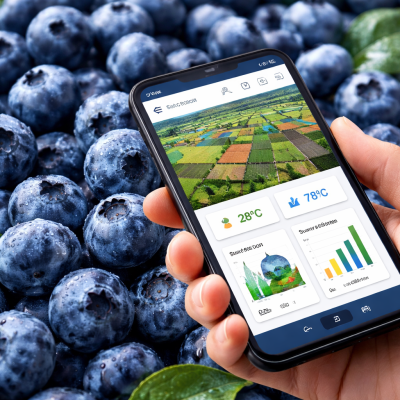Connecting Minds, Growing Futures
- . October 2025
By Mario Steta
For those of us who had the privilege of participating in the IBO Summit in Cape Town, there is no doubt that we witnessed how the theme of the Summit became a reality in South Africa. While there are many valuable berry conferences, the IBO Summit has, over the years, become the event that brings together key leaders and stakeholders of the global blueberry community. Having over 550 participants from 32 countries is a reflection of that.
A strong and engaging conference program—with leading presenters, analysts, and panelists—combined with an exhibition space featuring top suppliers and the many months of preparation by Berries ZA through Elzette Schutte, Brent Walsh, Herman van Dyk, and their support staff, culminated in an event that enabled deep learning and open discussions; productive exchanges addressing the current realities of the global blueberry industry; the creation of new relationships and the strengthening of existing ones; and a demonstration of what is, without a doubt, one of the best examples of industry cooperation, integration, and cohesion.
South Africa’s Minister of Agriculture, John Steenhuizen, opened the event with a candid, direct, and clear message about what the agricultural sector—and particularly the blueberry industry—represents for the country, outlining both opportunities and challenges, including an evolving trade environment.
With most presentations and panels meeting and even exceeding participants’ expectations, it is difficult to single out which had the deepest impact, as each provided valuable insights and reflections. Certainly, the launch of the 2025 IBO Global Production Report offered an excellent framework for the context of the Summit. With global trade and tariffs top of mind for all, Ambassador Darci Vetter’s presentation helped many of us gain a clearer understanding of the complexities and impacts of tariffs and the overall trade environment in Washington, D.C.
The example of SIZA’s achievements and the relevance of its work for the future were of great value. The need for harmonization and reduction of complexity by the EU was identified as an urgent matter, with all members of the Retail and Consumer Panel agreeing it must be addressed immediately. Topics such as the potential of India and its limitations, the expanding genetic portfolio, the financial sector’s perspective on blueberry production and sales, the future of mechanical harvesting for fresh fruit, and the role of Southern Africa in expanding blueberry supply were all covered and intensely discussed.
IBO Summits are centered on promoting ideas rather than companies themselves, and although there is always room for improvement, I believe we were quite successful in achieving that goal.
The farm visits allowed us to witness firsthand the reality of production in the Western Cape. I had the opportunity to visit Chiltern Farms, where Justin Mudge and his wife Tanya were the most welcoming hosts one could hope for. The visit turned out to be one of the most memorable field experiences, with open and transparent conversations involving Justin’s team—Sine Ngcingane, Johan Bayer, and Anton Both—that helped us understand the production challenges and the impact of global competitors, in this case Peru, on their operations.
If you have met Justin, or ever have the chance to, you would agree that he embodies the spirit of horticulture and blueberry production: passionate, genuine to the core, direct, transparent, welcoming, and deeply committed to doing what is best for his employees and the region where he was born and continues to farm.
A well-deserved recognition of Trevor McKenzy highlighted how one individual can create a lasting impact on our industry—and, in this case, on the Southern African blueberry sector. With most of the founding members of IBO and country representatives present at the Summit, IBO also presented its proposed Strategic Plan, which will help define its path toward 2030 and beyond.
The next Summit will be held in 2027. A testament to this event’s success is the fact that four countries—Chile, China, Peru, and the United States—have already expressed strong interest in hosting the global blueberry industry. In the coming weeks, the IBO Board of Country Representatives will undergo a consultation process to select the host country.
While South Africa faces many challenges, we were able to see the best of what the country is and can be—through its farming conditions, horticultural capabilities, production performance, industry cohesion, rich culture and history, and above all, its people. As for its natural beauty, if you must choose places to visit, Cape Town and the Western Cape should be at the top of your list.
I would like to conclude with a Xhosa and Zulu term shared at the end of Minister Steenhuizen’s message: “Ubuntu.”
The meaning of the word is “I am because you are,” and I believe nothing could better describe what the 2025 IBO Summit in South Africa meant to all of us.
10-10-2025
IBO Editorial







